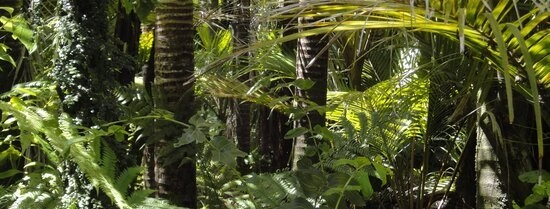Today marks International Day of the World’s Indigenous People, observed each year on 9 August. On this day, people around the globe are encouraged to elevate awareness about the rights and protection of the world’s indigenous population and celebrate the achievements and tireless contributions that indigenous people make to improve global issues.
Indigenous people
The World Bank describe indigenous people as 'distinct social and cultural groups that share collective ancestral ties to the lands and natural resources where they live, occupy or from which they have been displaced. The land and natural resources on which they depend are inextricably linked to their identities, cultures, livelihoods, as well as their physical and spiritual well-being.'
Sustainability and the future of Amazonia
Because of climate change, researchers at the International Institute of Social Studies (ISS) are concerned about indigenous peoples’ rights to land, territories, and natural resources. In recent years, global value chains and international trade analyses have been linked to unlawful extraction in resource-rich areas. Known for its unique biodiversity, the Amazon rainforest is a central site of environmental concerns. Brazilian Amazonia has lost more than 18% of its forest driven by illegal logging, cattle ranching and soy agriculture.
'History shows how numerous times we, indigenous communities, have been objects of studies that would tell our stories in the third person.'
Raimundo Abimael Ferreira dos Santos
Researcher
Several indigenous communities are continually affected by territory erosion and evolving trade systems along the rivers in and out of Brazil. Indigenous communities of Brazil are alarmed by spikes in deforestation. The government’s anti-environmental agenda and lack of prioritizing the protection of the area against illegal logging have aggravated deforestation. Protecting and maintaining Amazonia’s resources from commercial extraction has been crucial, not only for the world but to preserve the way of life of indigenous communities for future generations.
Brazilian youth give voice to feelings & thoughts about their territory
In 2021, ISS received the Royal Netherlands Academy of Arts and Sciences (KNAW) fund, ‘Science Communication: Appreciated!’. The fund encourages engagement with research communication efforts to increase knowledge and action among stakeholders, from the policy community to non-academic audiences. The endowment has led ISS to initiate three projects, one of which looks beyond indigenous people as objects of study. Instead, they take on the role of researchers and tellers of their own experiences in volatile contexts.
The project, ‘Livelihood Logics of the Amazonian Indigenous Communities: Researching & Communicating Perspectives on the Meaning of Territory’ supports the indigenous Munduruku youth and Ribeirinho youth in Brazil to creatively express what their territory means to them through paintings, photography, poems, and drawings. These territories — affected and exploited by value chain activity — are in and around the water channels connected to the Amazon.
Luciene Moreira Gemaque and Raimundo Abimael Ferreira dos Santos, researchers of indigenous and Ribeirinho backgrounds, have collaborated closely with ISS on this project. They have held group interventions with Munduruku and Ribeirinho youth.
In this project, young people are given the central and deciding role in creating a booklet for which they engage with territorial questions, among which those related to indigenous rights. Their stories can provide a piece of the puzzle in understanding how global systems of trade and deforestation continually affect indigenous communities. ISS will play an integral role in sharing the results of the project in the future, including the booklet.
Doing research with communities
Indigenous people are often objects of study. There is growing academic discourse to embrace participatory methods of research to ensure communities play an active role in having a say in issues that affect them. As put by Raimundo Abimael Ferreira dos Santos, lawyer and researcher from the Takuara Munduruku community: ‘History shows how numerous times we, indigenous communities, have been objects of studies that would tell our stories in the third person. As indigenous and academics, we started to do research in our own territory, with the power of the voice of those who live and know the reality on the ground, enriching the materiality of the work. It is within this framework that the Munduruku girls have become protagonists of their own space, presenting their perspective coming from their own experiences, and not through other people’s voices.’
- Assistant professor
- Researcher
- Researcher
- More information
Project participants
Community leader: Cacique Sebastião Gleidson Munduruku
Native language teacher: Maria Alerte Munduruku
Assistants: Tuchau Leonardo Munduruku, Joelma Munduruku
Youth involved in project: Fabiane Munduruku, Adriely Munduruku, Yanna Munduruku, Tays Munduruku, Raene Munduruku, Maclicia Munduruku, Raelen Munduruku, Marciele Munduruku- Related content

